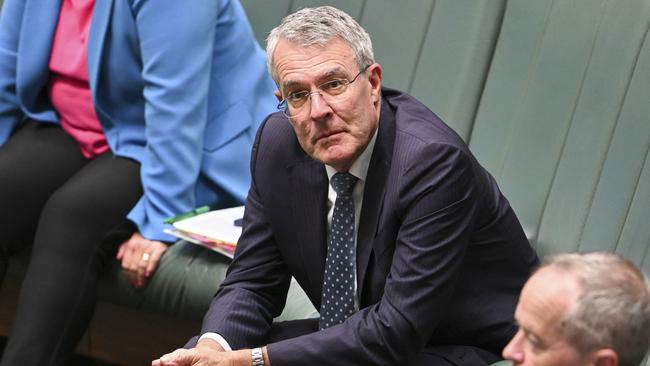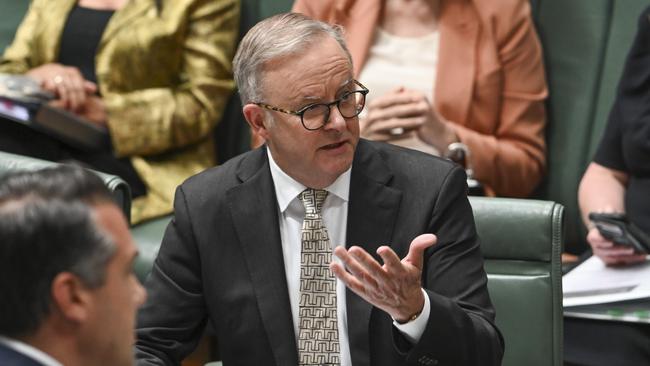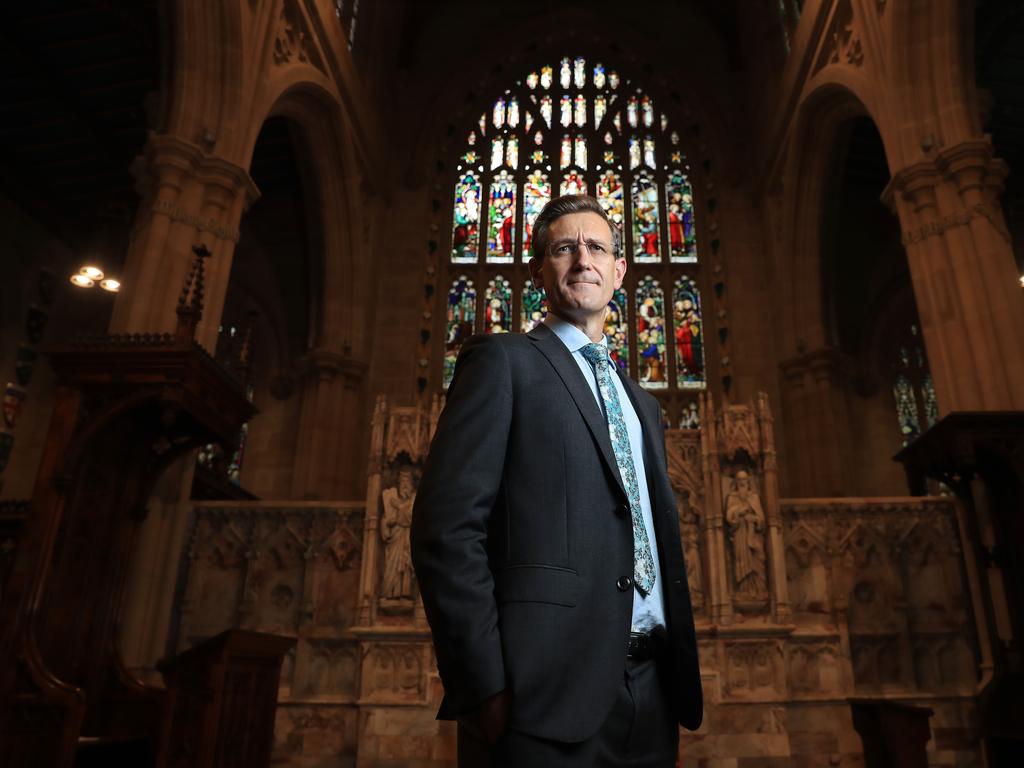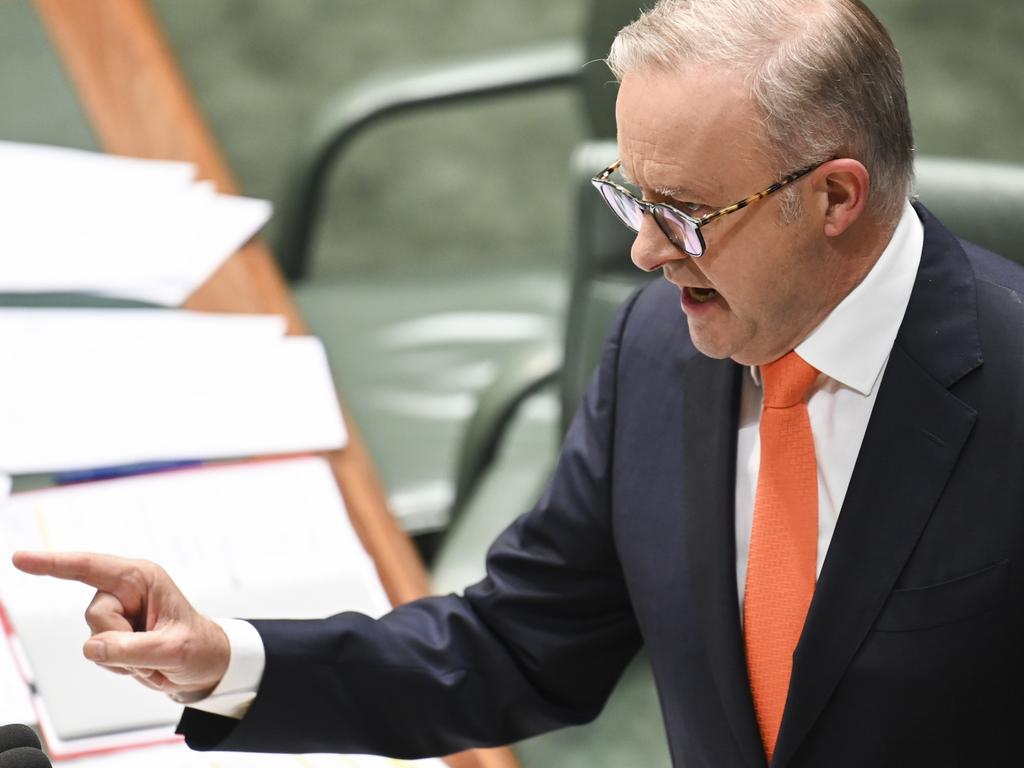Religious school reform a deadly test for Labor


The 469-page report from the Australian Law Reform Commission, based on strict terms of reference from Attorney-General Mark Dreyfus, is a brilliant insight into what the Labor Party’s policy on non-discrimination actually means for religious schools and how human rights law will be invoked to achieve the transformation.
The overarching recommendation is that religious schools lose the legal exemptions they currently enjoy under the Sex Discrimination Act that constitute a legal entitlement to discriminate against staff and students on the basis of sex, sexual orientation, gender identity, marital or relationship status or pregnancy.
The report’s purpose is to ensure that under this act differential treatment of people on the basis of religion should no longer be permitted. It argues this means that Australia wins because the outcome is to “maximise the realisation of human rights overall”.
But the reports admits while some rights are being maximised, others are being restricted. So what are the rights being limited? The report describes them as “the freedom to manifest religion or belief in community with others and the associated parental liberty to choose an education for one’s child in conformity with one’s own religious or moral convictions”.
These are fundamental human rights – but under this framing they are diminished. These rights are pivotal in Australia with its almost unmatched extent of religious education in a secular society, with 36 per cent of students attending a non-government school and where 90 per cent of such schools have a religious affiliation.
What is the justification for limiting these rights? The reports says the “limitations would be justified under international law as a necessary and proportionate means of promoting other human rights”.
How does that justification play for Anthony Albanese? What might the Coalition do with this report across religious communities in this country? The ALRC envisages two categories: human rights winners and human rights losers. The report doesn’t use such language and will deny that framing but that’s what it means.
It then engages in an extraordinary value judgment.
It says the “potential for harm to students and staff” from the current exemptions is “far greater” than the potential for harm being done to people seeking to maintain “the religious ethos of those institutions” if the legal exemptions are abolished. It makes harm minimisation the test.
In short, it simply says this reform removes a lot of harm for students and staff and does only “minor” harm – or no harm at all – to the religious value of the institutions. Hence, it’s a net plus on the scale of human rights. The report repudiates the assessments of many religious leaders that their religious mission would be undermined and says they have failed to produce the evidence. It doesn’t believe their claims – yet it is ever ready to accept the claims of others against them.
This report gives expression to a major shift in Australian society. Yet the extent of that shift depends on the question. It quotes survey numbers that 63 per cent of the population, 82 per cent of Catholics and 79 per cent of Catholic school parents believe religious schools are entitled to require employees to act in ways that uphold the values of that faith and the school is entitled to favour hiring employees who share those values. On the other hand, people disagree with discrimination.
Where does Labor stand? Remember, this report was directed by the terms of reference from Dreyfus. The ALRC report makes that point repeatedly.
Are the report’s values also Labor’s values? We await the evidence from the draft laws. But, if so, Labor will have hung around its political neck the report’s explicit admission that enshrining such non-discrimination means limiting religious freedom and parental choice in pursuing religious education. Is this Labor’s character in 2024?
The report makes a litany of argument for this reform. It says too much harm and potential harm is being done in these religious institutions. Indeed, they seem to be potentially terrible places.

It lists numerous concerns about the existing situation and benefits from change – staff have to hide their identity and lead covert lives, young LGBTQ+ students need to see the identity of their LGBTQ+ teachers to realise “everyone has a right to equality”, while excluding LGBTQ+ staff “risks perpetuating the notion that LGBTQ+ adults are a threat and a danger to children”.
In addition, because religious schools are a large part of the school sector and provide a publicly funded good they must comply with community-wide laws and not expect exemptions.
The report advances a host of human rights it asserts will be advanced by this reform – including the right to education, free expression, privacy, health and life and the right to work, the implication being that to some degree such rights are limited in religious institutions at present.
The report says its recommendations are “not intended or expected to reduce respect for any particular religious beliefs”.
It says: “The right to hold beliefs is absolute but the freedom to manifest beliefs is not.” It rejects arguments that if students are allowed to embrace “lifestyles that contradicted the beliefs of the community” then schools will lose their religious authenticity. Its recommendations would make unlawful direct discrimination against a student proposing to form an LGBTQ+ student club.
The ALRC considered the 2018 report of the Religious Freedom Review chaired by former Coalition minister Philip Ruddock that said religious schools could discriminate provided such action was founded in the precepts of religion, had regard to the child’s best interest and the school had a publicly available policy.
At the same time it repudiates the argument put by the National Catholic Education Commission that faith-based schools must not suffer from changes to the Sex Discrimination Act before the guarantees from a separate religious discrimination bill are delivered – since this situation will leave religious schools “severely limited” in terms of freedom to operate according to their beliefs.
The report dismisses this, saying: “There is no reason why reforms to the Sex Discrimination Act should not be implemented prior to the enactment of a Religious Discrimination Act” – an opening bound to be seized by progressive advocates of immediate change to the Sex Discrimination Act exemptions.
The report seeks to align the Sex Discrimination Act and the Fair Work Act in terms of religious exemptions and seeks to narrow the scope for religious institutions to treat staff differently on the basis of religion – despite staff with a religious character being seen as basic to the school mission.
The report says religious preference can be given in staff selection where “it is reasonably necessary to build or maintain a community faith” and the action is “proportionate” in the light of harm that may be done to a person who is not preferred. Essentially, it allows a school to discriminate on the basis of religion alone in relation to prospective but not existing staff.
This report is heavily geared to human rights legal imperatives. In a document integral to the role of religious schools in Australia, the report says virtually nothing about the contribution made to the nation by strong faith-based schooling. It is a blueprint for action that Labor is unlikely to accept – but it sits on the parliamentary table waiting for implementation in the future and is a reminder of the deadly political destination where Labor’s discrimination journey across the past decade has ended.
More Coverage
 The overarching recommendation is that religious schools lose the legal exemptions they currently enjoy under the Sex Discrimination Act
The overarching recommendation is that religious schools lose the legal exemptions they currently enjoy under the Sex Discrimination Act




The blueprint for the downgrading of faith-based education in Australia is driven by human rights law, international law and the primacy of anti-discrimination law to diminish religious freedom and parental liberty in choosing an education for one’s child consistent with religious conviction.